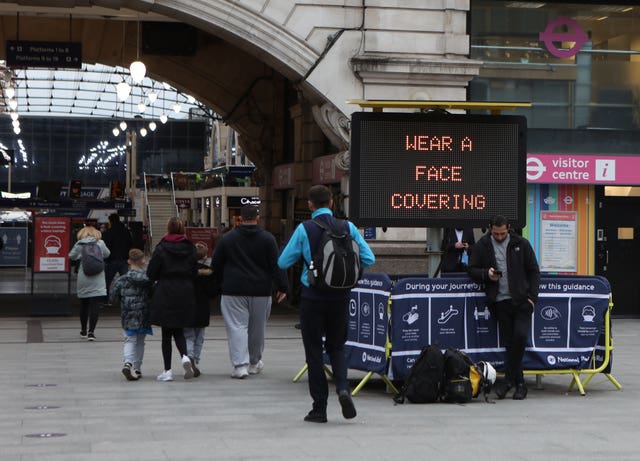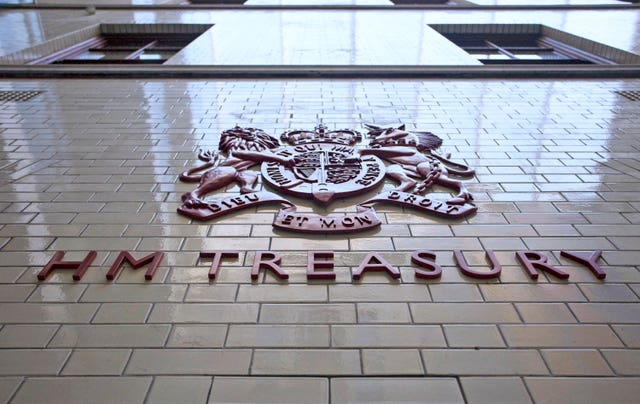
Richard Spurr 1am - 4am
22 October 2020, 18:44

The pandemic has forced ministers to loosen the purse strings.
The Government has spent tens of billions of pounds so far to combat the effects of the Covid-19 crisis.
On Thursday, Chancellor Rishi Sunak announced more further financial support for businesses, including those affected by Tier 2 local lockdown measures, in a package which could cost the Exchequer around £13 billion over the next six months.
Below are the projects that are estimated to cost more than £1 billion, according to publicly available sources.
Department for Business, Energy & Industrial Strategy
£12.4 billion – The Small Business Grant Fund, and the Retail, Hospitality and Leisure Grant Fund
£16 billion – Bounce Back Loan Scheme (BBLS)
£1.7 billion – Trade Credit Reinsurance Scheme
Department for Digital, Culture, Media & Sport
£1.5 billion – Cultural Recovery Fund (According to gov.uk website, October 17)
Department for Education
£1.8 billion – Schools rebuilding programme
£1 billion – Covid-19 catch-up fund

Department for Transport
£3.5 billion – Rail emergency measures
£1.6 billion – Transport for London (As confirmed by Transport Secretary Grant Shapps in the House of Commons, October 22)
Department of Health and Social Care
£15 billion (more than) – Personal protective equipment procurement to protect frontline staff
£12 billion – NHS Test and Trace programme (Mr Sunak in the House of Commons, September 24)
Department for Work and Pensions
£5.9 billion across multiple measures:
– Universal Credit: jobcentre attendance for new claimants to access advances
– Minimum income floor
– Access to Universal Credit
– Jobcentre attendance and other claimant commitments relaxed
– Increasing housing support
– Suspension of recovery of benefit overpayments
£5.5 billion – Universal Credit standard allowance
Foreign & Commonwealth Office
£1.2 billion – Income Tax self-assessment
£1.5 billion – Working Tax Credit Basic Element
£15.2 billion – Self-Employment Income Support Scheme
£3.8 billion (HM Treasury) or £2.5 billion (Office for Budget Responsibility) – Temporary Stamp Duty Land Tax cut
HM Revenue & Customs
£1 billion – Delaying the reform of the off-payroll working rules
£47 billion – Coronavirus Job Retention Scheme
£1.9 billion – Deferring £38 billion of VAT payments
£9.4 billion (HM Treasury) or £6.1 billion (Office for Budget Responsibility) – Coronavirus Job Retention Bonus Scheme
£4.1 billion (HM Treasury) or £2.5 billion (Office for Budget Responsibility) – Reduced rate of VAT for the hospitality sector, accommodation and attractions

HM Treasury
£12.7 billion – Support to the devolved administrations
£11.8 billion – Business rates holidays for retail, hospitality and leisure sectors, and for nurseries
Ministry of Housing, Communities & Local Government
£3.7 billion – Non-ringfenced funding to support pressure on social care in local government
Unless otherwise stated, figures are estimated costs taken from the National Audit Office’s Covid-19 cost tracker of September 8.